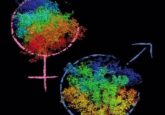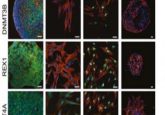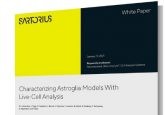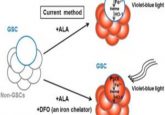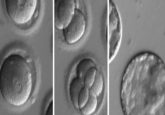Brain cells disease study made simpler
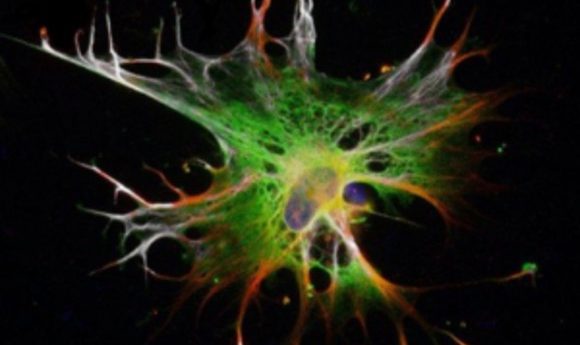
A novel method for producing brain cells (astrocytes) from stem cells in just two weeks has been developed.
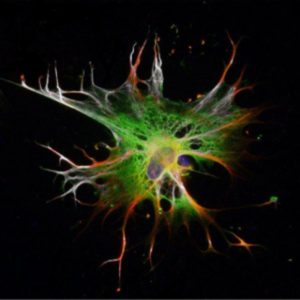
Astrocytes grown from embryonic stem cells. Credit: Isaac Canals, Lund University.
A team of researchers from Lund University (Sweden) has developed a new method to speed up the development of brain cells (astrocytes) from embryonic stem cells, from months to two weeks. This will make the study of the role of astrocytes in various diseases much easier.
Astrocytes play a major role in different brain diseases, such as dementias and ALS. However, there are many challenges facing researchers wishing to study astrocytes as they are difficult to obtain. Current methods in place to grow astrocytes in the lab take a long time and are expensive and complicated.
“Previous methods have succeeded in producing human astrocytes from embryonic stem cells, but it has taken months. Using our method, it takes one to two weeks to produce large amounts of fully functional human astrocytes,” commented Henrik Ahlenius, study leader.
The team’s novel method, described in their article published in Nature Methods, utilized viruses to activate specific genes in the embryonic stem cells. These genes would normally regulate how the astrocytes are formed. The astrocytes produced from the stem cells are very similar to normal brain astrocytes.
“Many researchers have previously used embryonic stem cells to generate astrocytes, but these methods have attempted to mimic the normal development of an embryo’s stem cell when developing an astrocyte in an individual, which requires a time-consuming and complicated approach,” explained Ahlenius.
In order to assess the potential of this method to study disease at a cellular level, CRISPR-Cas9 was employed to insert a mutation into the embryonic stem cells to give rise to a brain condition named Alexander disease. The team then utilized this new method to convert the stem cells into astrocytes and showed that the astrocytes carrying the mutation displayed defects that are associated with Alexander disease.
“Using this approach of combining CRISPR-Cas9 and our method to rapidly grow human astrocytes provides improved possibilities to study the role of astrocytes in various neurological diseases,” concluded Ahlenius.
The team now hopes to utilize the method for the further study of neurodegenerative diseases, including dementia and Alzheimer’s.
